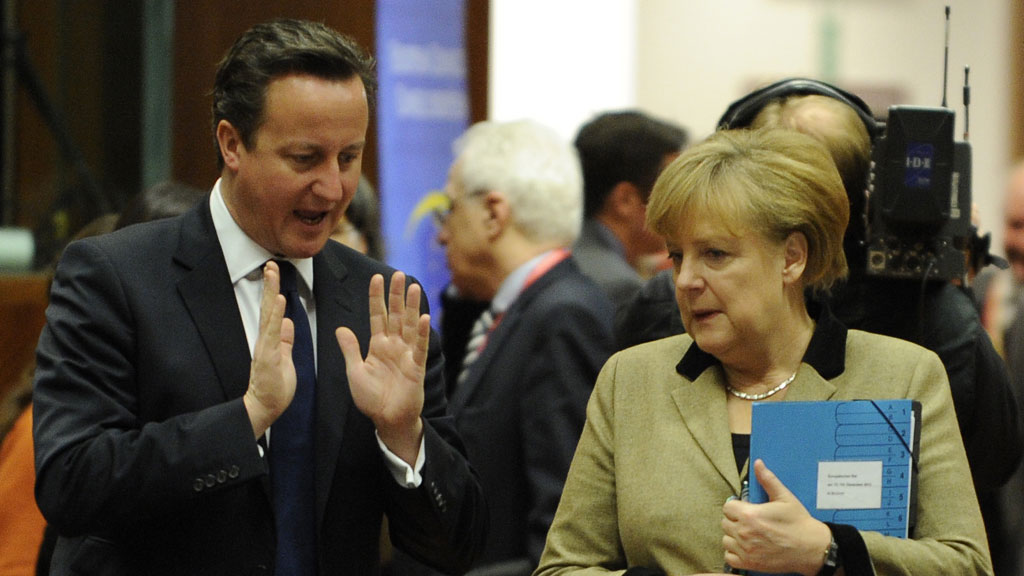Cameron prepares for EU budget showdown
David Cameron heads to Brussels today to resume negotiations with other European leaders about the size of the EU budget.
- Chapters
- descriptions off, selected
- subtitles off, selected
- captions settings, opens captions settings dialog
- captions off, selected
- en (Main), selected
This is a modal window.
This is a modal window. This modal can be closed by pressing the Escape key or activating the close button.
Talks collapsed in November, with Mr Cameron insisting on “at worst a freeze, at best a cut” in the size of the EU budget from 2014-20.
Since then, he has announced that Britain will hold a referendum on EU membership if the Conservatives win the next election.
He is under pressure from Conservative Euro-sceptics to take a hard line, but European Council President Herman Van Rompuy has challenged him to agree a deal with other leaders.
Mr Van Rompuy believes a real-terms freeze is achievable. The prime minister’s spokesman has said Mr Cameron is ready to block a deal if he fails to negotiate this, to reflect the cuts being made at national government level and in households across Europe.

On the table
Mr Van Rompuy has said that although a real-terms freeze is on the table, money is needed to tackle youth unemployment, along with real-terms increases in spending on research, innovation and education.
Mr Cameron’s spokesman said Germany, Holland, Denmark and Sweden were also in favour of a spending freeze.
Southern and eastern European countries are less likely to agree to a freeze, while the European Commission, the EU’s executive body, argues that it has already cut administration costs and more severe reductions would make it impossible for it to do its job.
Like the prime minister, Labour leader Ed Miliband would like to see a real-terms budget cut.
Mr Cameron’s negotiating stance has come under fire from French President Francois Hollande, who has queried how Britain can argue for cuts while demanding the retention of the £3bn rebate Margaret Thatcher won.
If talks break down and a future budget is not agreed, exising spending will be rolled over month by month until a deal is done.